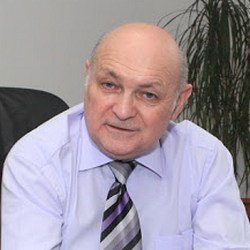'Tatarstan' pyramid: the birthplace of financial fraudsters in Russia
Why does the blooming republic attract creators of dubious financial structures to launder money and deceive novice investors?
Total digitalisation, entrepreneurial initiative, powerful infrastructure and shadow wealth of individual citizens seem to have played a cruel joke on Tatarstan. The region has become a haven and even a “centre of power” for a number of dubious financial organisations, some of which have already collapsed, leaving behind thousands of victims and many millions in debt. In 2020, Tatarstan, to a great shame, has earned itself the “glory” of the homeland of pseudo-investment funds that defraud not only proletarians becoming bourgeois and office monkeys, but even “mobsters” and former officials. Some offices are only nominally linked to the republic — the organisers have long been outside of Tatarstan, but they all register one-day firms here in batches, without any fear of being caught at the start. Realnoe Vremya tried to understand why the Tatarstan tax service does not fight them and why projects in the style of “how to raise money” appear en masse on the Tatarstan land, then spreading throughout Russia.
“Tatars” again
What unites the Azino777 online casino, which has set the teeth on edge to Russian Internet users and owes 3,500 depositors a billion rubles Rost credit consumer cooperative, as well as pyramid-like Finiko, LTDLION and the Gafarov and Partners fund? That's right: Tatar roots, and most importantly, a local residence permit.
Although with the brainchild of Kirill Doronin, the Finiko project, not everything is so clear. According to one version, the basic enterprise CyfronCapital OU is registered in Estonia (at the moment its fate is not entirely clear), and on the other — a mysterious individual entrepreneur Zygmuntovich Zygmunt Ryshardovich, created last year in Tatarstan, is indicated as the company's legal entity.
Just this week, a criminal case about the organisation of financial pyramids has been initiated in relation to Doronin's “system for the automatic generation of profits”. At the same time, the founder of the project told Realnoe Vremya that he does not consider Finiko a pyramid and even gave a number of arguments in favour of his statement.
In turn, “the first investment fund from Russia that earns money on betting”, that is, on the contradictions and mistakes of bookmakers, under the name Gafarov and partners, is also registered in Tatarstan, namely in Naberezhnye Chelny, on Prospekt Mira, 33b. At the moment, the company's co-founder Erik Gafarov is on the international wanted list.
Not only law enforcement agencies but also depositors are waiting for his return to their homeland, the amount of damage caused to which amounted to about 100 million rubles.
Last year, IT specialist Albert Valiakhmetov was suspected of creating the largest banned online casino Azino777, where the annual volume of bets, according to experts, can reach 15 billion rubles. It is interesting that in this case, the media found a branch of the casino in Tatarstan, and not just anywhere, but in Korston, Kazan.
Finally, right now another fast-growing investment company with a Tatarstan registration is gaining momentum in Russia — LTDLION. Law enforcement officers have not yet taken up this case, however, as Realnoe Vremya found out, they have every reason to take decisive action.
The list of projects that originated in Tatarstan “on voluntary withdrawal of money from the population” can be continued even further (remember the bankrupt consumer cooperatives Credit Centre of Sergey Kuptsov or already mentioned Rost consumer credit co-operative). And you can ask yourself why all this became possible and how soon Tatarstan will gain the reputation of “haven of grifters”.
“The tax service is the main means of combating”
Realnoe Vremya contacted Dmitry Chernik, honoured economist of Russia, president of the Chamber of Tax Consultants, who explained a strange feature of Tatarstan: “All sorts of fraudulent companies choose those regions where it is easier to register and where there is less demand”, which already suggests the idea of where exactly to look for answers to the above questions.

It turns out that if all sorts of pseudo-investment funds and pyramid-like offices massively rushed to register their dummy firms in Tatarstan, some nuts in the system have seriously “loosened” over time?
“I can say that there has always been a fairly tough fight with one-day firms. Since Mishustin became the head of the federal tax service, it has especially intensified — he has done a lot to eradicate such firms. In general, if we talk about the situation you describe, the tax service is, of course, the main means of combating," Dmitry Chernik is sure.
Realnoe Vremya submitted two requests to the Federal Tax Service of the Republic of Tatarstan, but no response was received at the time of publication of the material. The officer-in-charge of the tax service stopped communicating at some point. Let us note that the editorial board is ready to publish the position of the department immediately upon receipt of the comment.
“Tax authorities work through landlords and space owners”
Not everyone is as categorical as Dmitry Chernik on the question of how such dominance of pseudo-investment companies in the republic became possible. For example, commissioner for the protection of entrepreneurs' rights Farid Abdulganiev inclined to believe that it is necessary to apply “to internal affairs bodies and those involved in economic crimes”.

Yulia Zazdravnaya, an expert of the Council on Entrepreneurship under the President of the Republic of Tatarstan, also shifts the focus to the Directorate for Combating Economic Crimes, as well as to the Central Bank, and believes that the control of one-day firms by the tax service is at the proper level:

There are versions: it is easier to register here, “there” — it is easier to work
There is less optimism in the comments of federal experts of Realnoe Vremya — they tend to believe that the most likely reason why fraudsters are massively registered in the region is the connivance of the supervisory services responsible for fighting them. And they believe that such connivance may be the result, among other things, of an interested attitude of individual officials to their duties.
Dmitry Golubovsky, a financial analyst at Kalita-Finance, stressed that the legislation that is uniform throughout Russia does not allow us to draw a clear conclusion as to why the pyramid organisers chose Tatarstan for the registration of their companies.:
“The reason for this phenomenon may be that in some particular place there is collusion with the tax service. The tax service has all the capabilities to track all movements on accounts, they even have, as far as I know, artificial intelligence that can detect these one-day firms. And if they don't, the conclusion is that they are in cahoots.

Alexander Yakovlev, the director of the analytical information department of RosBusinessConsulting CJSC, preceded his comment with a reservation that this is just his hypothesis and pointed out the power “backlash”, as a result of which Tatarstan could become a suitable place for registration of other people's “pyramids”.

Without a strong hand
Those who have been doing business in Tatarstan for many years remember the times when the republic's leadership initiated special operations to clear the shadow sector of the economy. At one time, one of them, and very effectively, was personally headed by the chief of staff of the president of the Republic of Tatarstan, Asgat Safarov.
However, the screws seem to be being tightened in recent times only in relation to bona fide entrepreneurs from open sectors. The inspections of cafes, restaurants and concert venues during the pandemic seem to be especially unfair against the background of pyramid fever. Against the background of the latter's battle for survival, business gypsies charged with numerous motivational courses are making fortunes by building pyramid schemes and pseudo-investment funds in Tatarstan. By the way, Gafarov and his partners initially had a business in the field of catering. The tax service and the Central Bank, which are busy harassing legal players, do not notice them at all. And the shadow income of various figures, oilers and construction workers, coupled with limited opportunities for large earnings and potential realisation, pushes the most talented IT specialists who come to Kazan and Innopolis from all over Russia and the CIS into crime. Especially when it is possible to enlist the support of, for example, the former minister of communications.
How long will this go on and how far will it lead? Perhaps, the first step to solving any problem is to recognise and understand it. Realnoe Vremya will follow the developments.